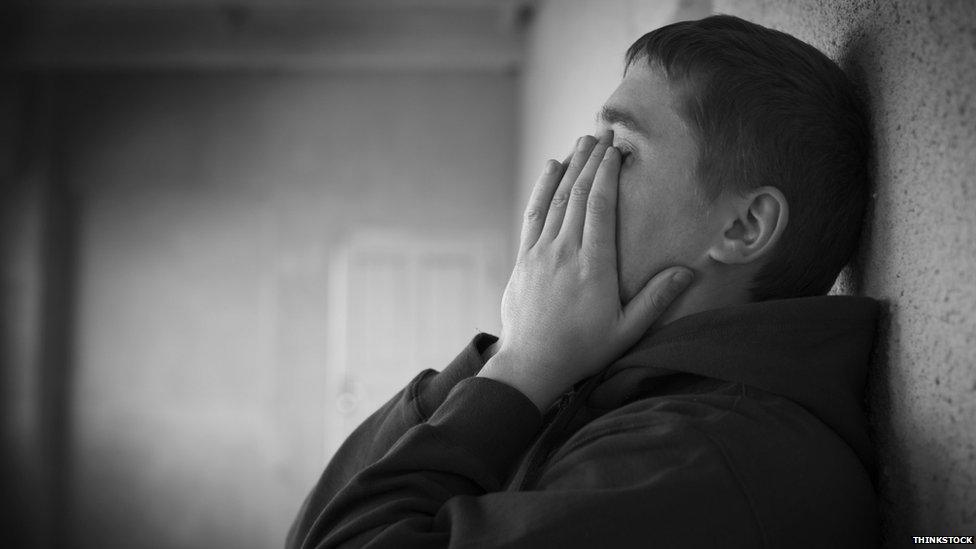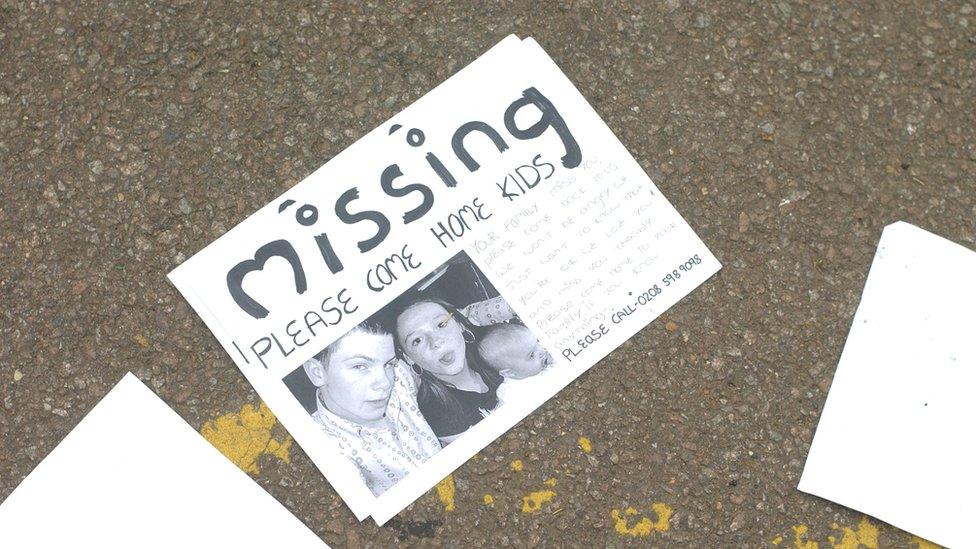Why do hundreds of thousands of people go missing in the UK every year?
- Published

Almost half of people who go missing in the UK are aged between 15 and 21.
Although the majority are found safe and well, the National Crime Agency (NCA) says it's important to understand why and stop it happening again.
"Going missing is a symptom that something's wrong," says Sherri McAra, manager of the NCA's missing children's team.
Most of them choose to run away because they feel unhappy or are unsafe in their homes or in care.
"It could be arguments with their parents, up to more serious physical or emotional abuse.
"The reasons why people go missing are quite complex."
Last year more than 300,000 calls were made to police in England, Scotland and Wales reporting someone missing.
Almost two thirds of people go missing intentionally, but that doesn't mean they want to.
Typically, they are trying to escape problems with relationships, money or their own wellbeing.
Up to eighty per cent of people who go missing have mental health problems, external.
BBC Advice has help and information about running away and homelessness.

"Particularly for people with depression, they might feel that there's no hope, and just need time away," says Dr Karen Shalev Greene, director of the Centre for the Study of Missing Persons at the University of Portsmouth.
She says this is because people with depression often find it hard to talk about how they're feeling.
"They might be what we call functionally depressed. The image is that they're fine but they're crumbling inside, and at some point they just can't hide it any more, so they'll just leave."
Children and young people in care homes and foster care are far more likely to run away than those who live with parents, because their home environment is less settled.

This missing poster featured on an episode of EastEnders in 2005
"Unfortunately something has happened in their life that's meant they've been placed in care so they already have an increased level of vulnerability," explains Sherri.
"They're being placed into somewhere they don't know very well, they're having to live with other children who have their own vulnerabilities and concerns.
"It's a less secure environment for them," she says.
"Sometimes children are moved to different care homes, so they feel less secure in terms of whether they'll be staying there for any length of time."
Unfortunately many young people are sent to care homes outside the area they grew up in. When they run away, they're going to see the people or places they're familiar with.
Even if social workers know where they've gone they'll report them missing, because they may not be safe.
Research shows young people who go missing are at greater risk of being sexually exploited.
Typically, this is when an older person manipulates them into performing sex acts in return for money, gifts or the false promise of love.
They come to see their abuser as a boyfriend or girlfriend, and even run to them.
Police in England and Wales have been criticised for the way they deal with such cases.
The police watchdog says children who go missing are being left at risk of serious harm because of "unacceptable inconsistencies", external in the way police respond.
If you're thinking of going missing or running away, if you're already away from home, or if someone you care about is missing. You can call or text Missing People on 116 000 or email 116000@runawayhelpline.org.uk
Find us on Instagram at BBCNewsbeat, external and follow us on Snapchat, search for bbc_newsbeat